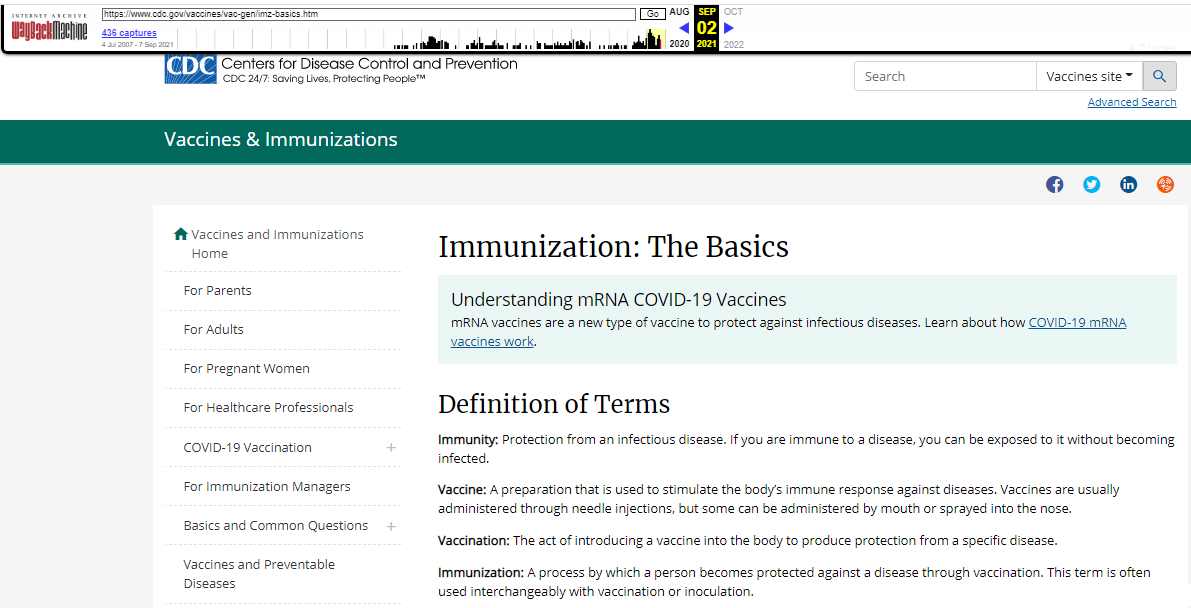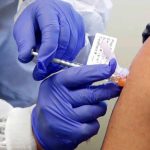CDC’s evolving definition of vaccination: Webpage archives show CDC changed the definition of “vaccination” 3 times in 6 years; replaced “immunity” with “protection” in Sept. 2020
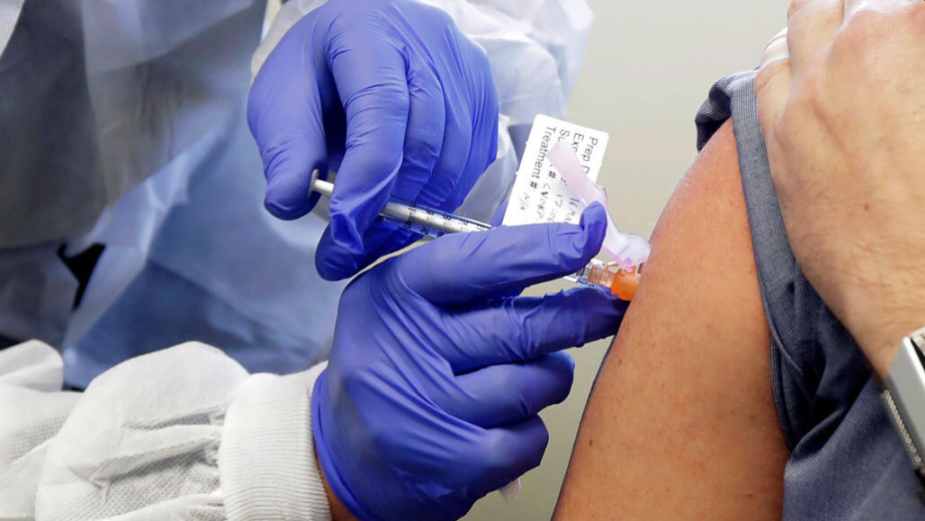
Over the past 18 months, the government and public health officials have said repeatedly that vaccines are our only hope to end this deadly pandemic. The Centers for Disease Control and Prevention (CDC) has repeatedly said that the vaccines would prevent people from getting hospitalized and even death.
Just back in April, the CDC Director Dr. Rochelle Walensky went as far as saying that “vaccinated people do not carry the virus, and don’t get sick.” But that turned out to be false. The CDC later walked back its claim that vaccinated people do not carry covid saying that the “The Evidence Isn’t Clear.”
Which leads us to the question: What exactly is the scientific definition of vaccination? To answer this question, we turn to the authoritative source–the CDC. To our surprise, the CDC does not have a consistent definition for “vaccination” or “vaccines.” In fact, the CDC’s definition of vaccination has evolved over the year. In the last six years, for example, webpage archives show that CDC has changed the definition of “vaccination” at least three times.
That’s not all. In September 2020, the CDC decided to replace the word “immunity” with “protection.” Below is a screenshot of the CDC definition of vaccination over the past six years.
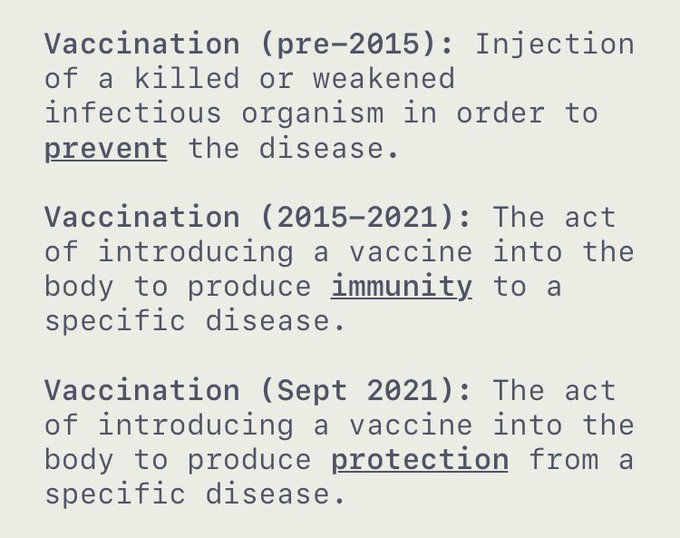
Below are the CDC’s evolving definition of vaccination over six years according to web archives from Archive.org
July 10, 2012: http://web.archive.org/web/20120710132002/https://www.cdc.gov/vaccines/vac-gen/imz-basics.htm
“Immunization: The process by which a person or animal becomes protected against a disease. This term is often used interchangeably with vaccination or inoculation.
Vaccination: Injection of a killed or weakened infectious organism in order to prevent the disease.
Vaccine: A product that produces immunity therefore protecting the body from the disease. Vaccines are administered through needle injections, by mouth and by aerosol.”
February 14, 2015: http://web.archive.org/web/20150214043055/https://www.cdc.gov/vaccines/vac-gen/imz-basics.htm
Immunity: Protection from an infectious disease. If you are immune to a disease, you can be exposed to it without becoming infected.
Vaccine: A product that stimulates a person’s immune system to produce immunity to a specific disease, protecting the person from that disease. Vaccines are usually administered through needle injections, but can also be administered by mouth or sprayed into the nose.
Vaccination: The act of introducing a vaccine into the body to produce immunity to a specific disease.
Immunization: A process by which a person becomes protected against a disease through vaccination. This term is often used interchangeably with vaccination or inoculation
August 26, 2021: http://web.archive.org/web/20210826113846/https://www.cdc.gov/vaccines/vac-gen/imz-basics.htm
Immunity: Protection from an infectious disease. If you are immune to a disease, you can be exposed to it without becoming infected.
Vaccine: A product that stimulates a person’s immune system to produce immunity to a specific disease, protecting the person from that disease. Vaccines are usually administered through needle injections, but can also be administered by mouth or sprayed into the nose.
Vaccination: The act of introducing a vaccine into the body to produce immunity to a specific disease.
Immunization: A process by which a person becomes protected against a disease through vaccination. This term is often used interchangeably with vaccination or inoculation.
September 2, 2021: http://web.archive.org/web/20210902194040/https://www.cdc.gov/vaccines/vac-gen/imz-basics.htm
Immunity: Protection from an infectious disease. If you are immune to a disease, you can be exposed to it without becoming infected.
Vaccine: A preparation that is used to stimulate the body’s immune response against diseases. Vaccines are usually administered through needle injections, but some can be administered by mouth or sprayed into the nose.
Vaccination: The act of introducing a vaccine into the body to produce protection from a specific disease.
Immunization: A process by which a person becomes protected against a disease through vaccination. This term is often used interchangeably with vaccination or inoculation.
July 10, 2012 Screenshot
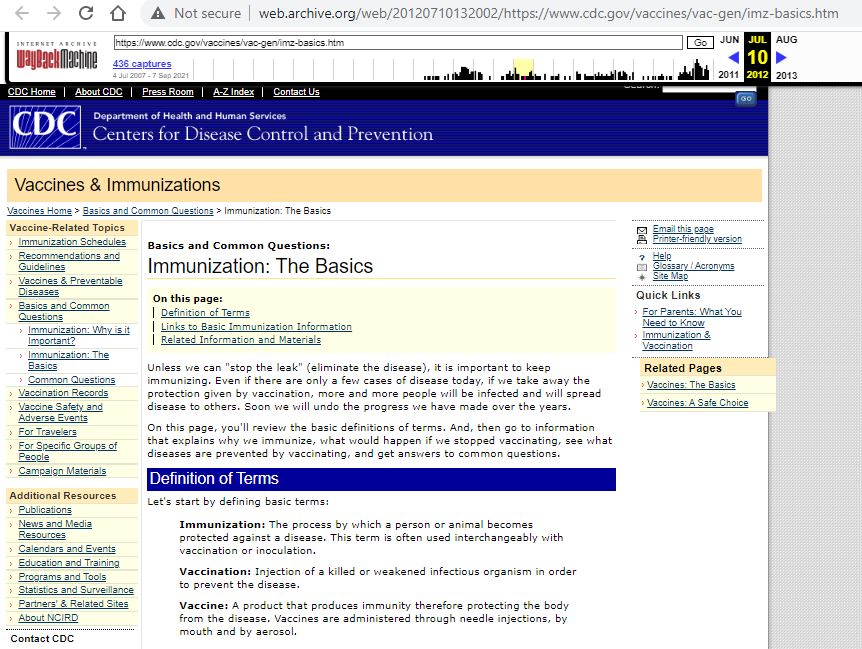
February 14, 2015 Screenshot
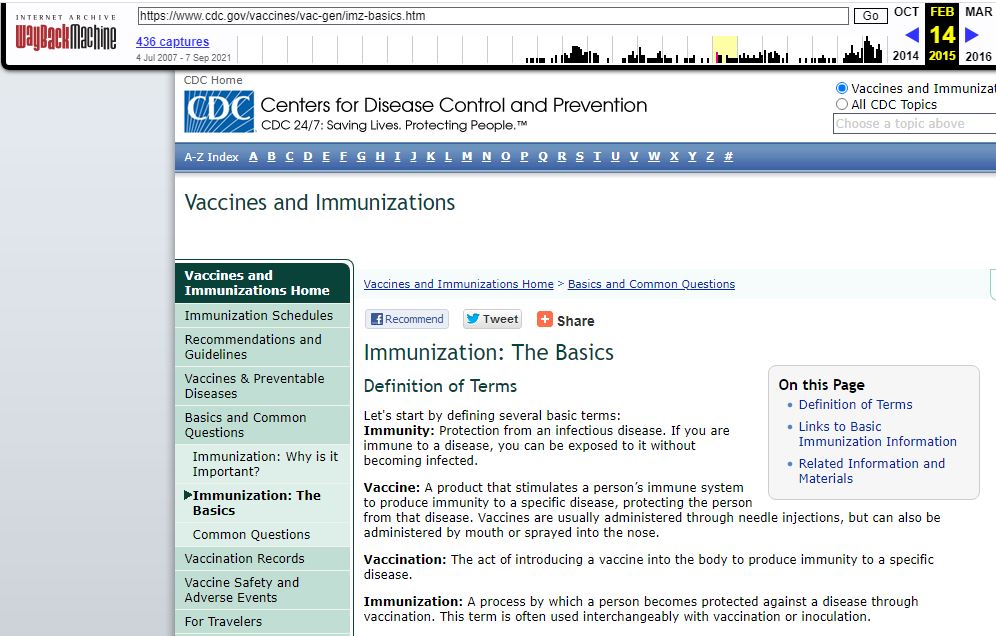
August 26, 2021: Screenshot
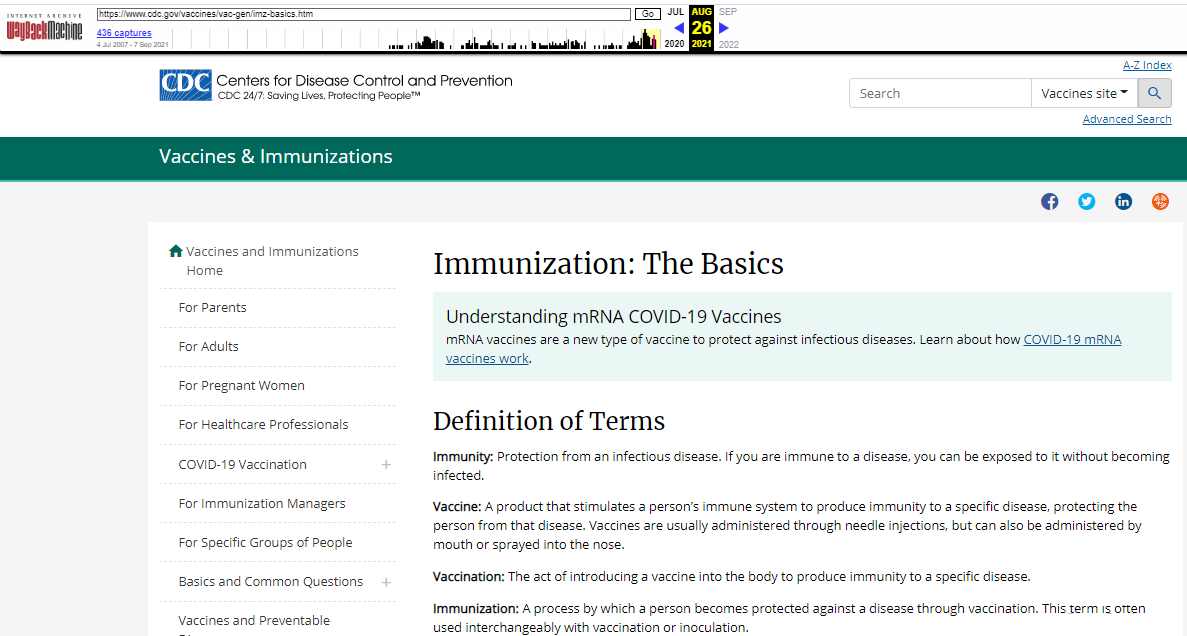
September 2, 2021 Screenshot
